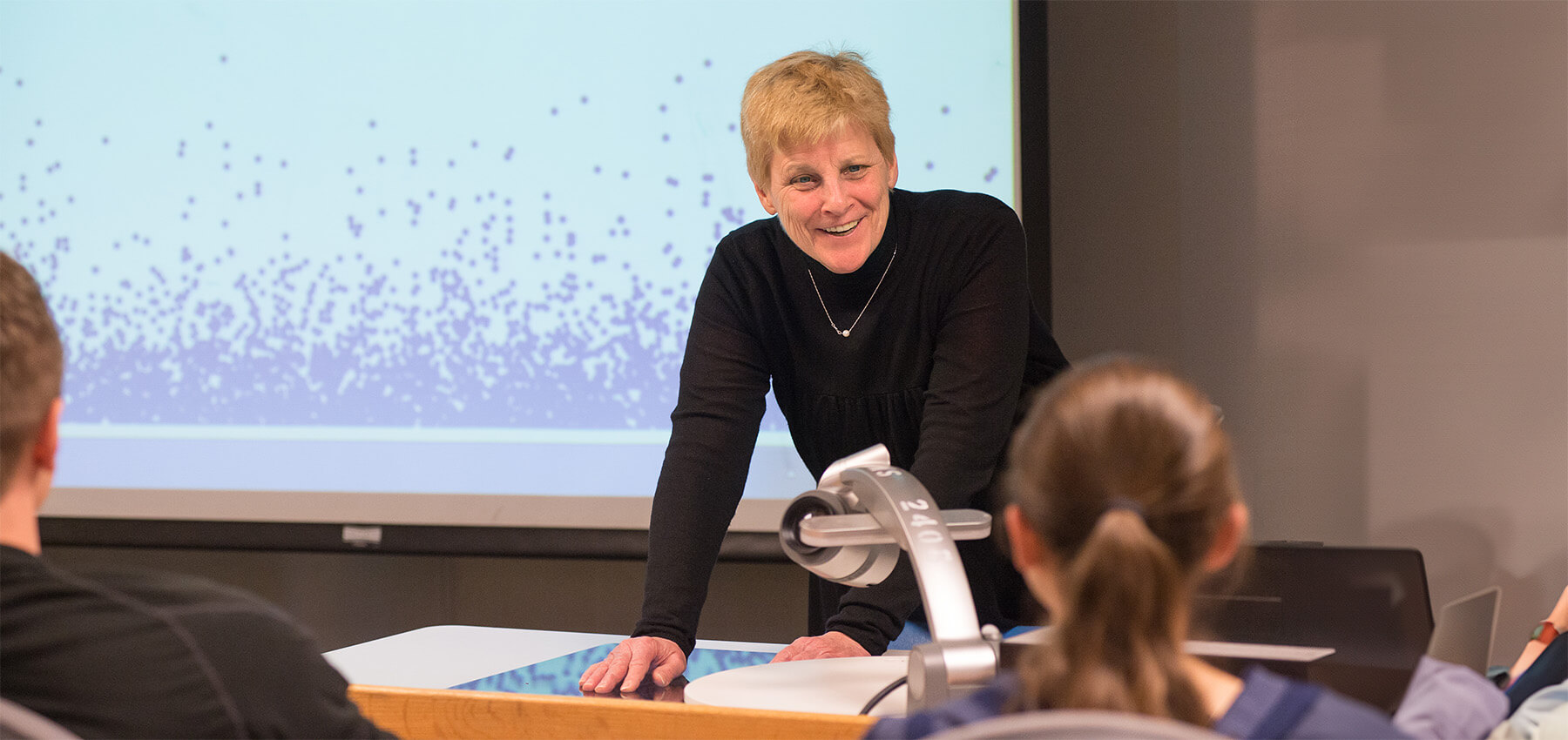More
Vermont Complex Systems Center
The Vermont Complex Systems Center is guided by a post-disciplinary team of faculty and students working at the University of Vermont's College of Engineering and Mathematical Sciences on real-world, data-rich, and meaningful complex systems problems of all kinds.

Vermont Complex Systems Center
Statistics and Data Science Club
This club is a space for students of all majors to learn more about the workings and applications of statistics and data science. It is a registered student chapter of the American Statistical Association.
We will take advantage of our ASA membership by providing students with networking and career opportunities within the ASA. Also, using public/provided data sets, we will seek to improve our applicable skills while also getting involved with the Burlington/Statistics community.
Statistics and Data Science Club
Data Science Program Mission
UVM’s undergraduate data science program is committed to fostering a vibrant learning environment that equips students with the knowledge, skills, and ethical values to excel in the dynamic field of data science. Our mission is to provide an exceptional undergraduate education in data science, preparing our students to become data-driven problem solvers, innovators, and responsible global citizens.
Our Data Science Degree Program is dedicated to achieving the following core objectives:
- Excellence in Education: We aim to deliver a comprehensive and rigorous curriculum that combines foundational theory and practical applications. Our students will develop a deep understanding of mathematics, statistics, computer science, and domain-specific knowledge, providing them with the tools to analyze, interpret, and derive insights from complex data.
- Interdisciplinary Approach: We recognize that data science is inherently interdisciplinary. Our program fosters collaboration across various fields, encouraging students to work with diverse data types and domains, from healthcare and finance to social sciences and engineering.
- Innovation and Research: We encourage our students to engage in cutting-edge research and creative problem-solving, enabling them to develop innovative data-driven solutions. Through faculty mentorship and access to state-of-the-art technology, our graduates will be well-prepared to contribute to the ever-evolving field of data science.
- Ethical and Responsible Data Use: We instill in our students a strong sense of ethical responsibility when handling data. They will understand the importance of privacy, transparency, and fairness in data science practices, ensuring their work benefits society and individuals.
- Real-world Experience: Our program incorporates hands-on experiences, internships, and capstone projects that connect students with industry partners. This practical exposure allows students to apply their knowledge to real-world challenges and build a network within the data science community.
- Inclusivity and Diversity: We are dedicated to fostering an inclusive learning environment that embraces diversity of thought and backgrounds. We believe that a diverse student body leads to richer perspectives and solutions in the data science field.
- Lifelong Learning: We emphasize the importance of continuous learning in the rapidly evolving data science landscape. Our graduates will be equipped with the skills and motivation to adapt to new technologies and methods throughout their careers.
- Community Engagement: We encourage our students to engage with the broader community through outreach, volunteer work, and educational initiatives, recognizing that data science has the potential to address societal challenges.
Through a commitment to these principles, we prepare our graduates for fulfilling careers in data science, empowering them to make data-driven decisions that positively impact their organizations, communities, and the world at large. Our data science degree program strives to cultivate the next generation of data scientists who are versatile, ethical, and prepared to tackle the data challenges of tomorrow.




